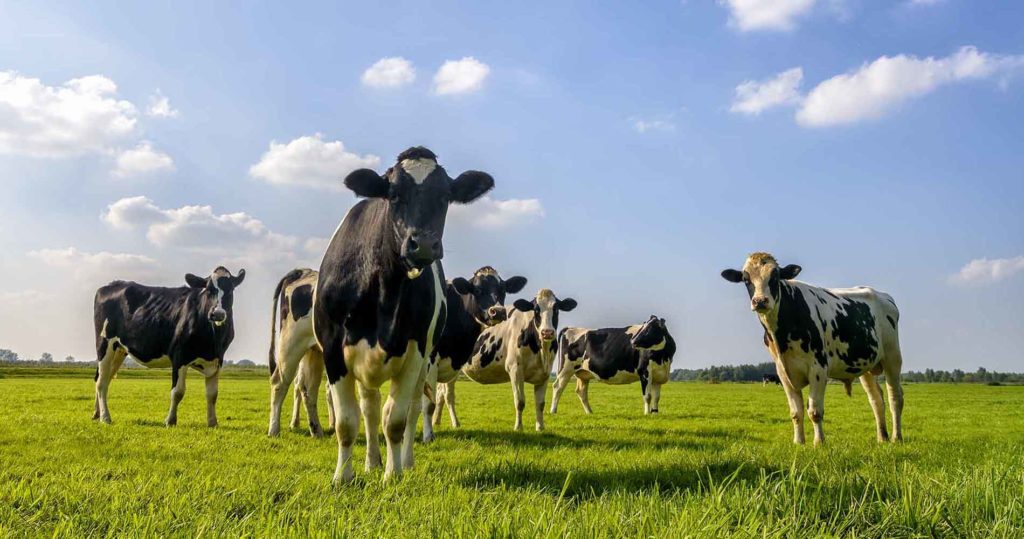
Dairy data floods ACM with daily goodness, ensures efficiency and guards quality
In the wee small hours of a Sunday morning on the fringes of Girgarre, a small rural town nestled between Shepparton and Echuca, a silver tanker quietly pulls off the road and into a driveway.
By the glow of the light cast on giant steel silos, with no-one else in sight, the tanker driver jumps down from the cab and inputs a booking number that he’s already been sent. The booking number matches and he gets the green light allowing him to hook up his tanker there and then, offloading its cargo of fresh milk – assured that it’s being directed to the right vats and with data collected to trace the process from go to whoa.
Instead of spending half an hour yarning with an employee working nightshift at factory gate, then completing and cross-checking paperwork, everything has been automated. Costs are kept down, the risk of error is reduced, and the milk is safely delivered where it should be without delay.
For dairy enterprise ACM it’s the latest in a series of technology innovations that is injecting efficiency and ensuring quality by streamlining processing and reining in costs with a rich data trail ensuring no compromise on product safety.
ACM’s recently opened $55 million high-tech milk processing and manufacturing facility at Girgarre in Victoria is a beacon of the sort of flexible, but highly controlled food processing that can be achieved with state-of-the-art intelligent information technology.
Jason Limbrick, Chief Operating Officer, says; “The minute the tanker driver arrives on site to unload milk he’ll have a confirmed booking number for the milk delivery and he will then, as long as the documentation and information that he’s got matches up with the expectations of the plant, start the unloading and pump milk into the silos.
“He can also generate and store his own samples and effectively load that milk receipt into our system, which is quite unique for the dairy industry around this area.”
At full capacity the Girgarre facility will be able to handle around 200 million litres of milk. It sounds a lot – but is relatively compact compared to other milk processing businesses in the area.
Where ACM distinguishes itself is that it is targeting customers looking for high value, high specification products. The plant also has to be able to manage multiple milk types at any one time – conventional, organic, A2, and so forth.
Limbrick says; “The factory has got the capability to effectively manage at least two milk types on site at any one point in time, which is quite unique. It’s got a lot of duplicated systems and duplicated equipment for us to be able to do that, primarily to get our organic product into market, cost effective and a reliable supply chain.”
An information system able to track and trace milk wherever it is, essentially providing an end to end audit trail, is critical to Girgarre’s, and ACM’s, success.
A range of advanced technologies including machine learning has been deployed, reducing the potential for human error and guarding against the risk of organic milk being contaminated by conventional milk. This is crucial given that demand for organic milk far outstrips supply.
“Organic milk is still a niche market but we’ve got the largest pool so we need to manage it effectively,” says Limbrick. “There’s a risk of contamination if it goes into the wrong silo, so the system ties up into all the tanks and pumps and screens. The new system won’t physically allow them to do the wrong thing.”
Automation also helps keep operational cost down. Staff tap into Microsoft Dynamics 365 Customer Engagement for production planning, logging and quality assurance, Dynamics 365 Field Services addresses factory maintenance, and Azure Cognitive Services supports quality assurance testing using image recognition.
Just automating and streamlining tanker unloading has allowed ACM to rein in weekend overtime costs which it believes could save $100,000 a year.
Best of breed delivers competitive edge
As a greenfields, brand new facility there was an opportunity to sidestep any computer system legacy issues and go straight for a best of breed solution according to Chris Motton, Solutions Director at Microsoft partner, Advance Computing.
“We developed a finance system for the operations of the plant, as well as systems to cover everything from production management through to manufacturing,” says Motton.
It’s not the first time Advance Computing has helped ACM streamline and optimise operations.
A decade ago, in ACM’s early years it was focussed on milk management and brokering, working with farmers to collect and distribute milk to processors who would sell it on to retailers and, ultimately, consumers.
It committed to providing farmers with competitive, market-linked prices without the risk and volatility. To its customers, ACM promised reliability in the unpredictable world of dairy. It delivered on these commitments using sophisticated risk and logistics management systems that ensure less milk goes to waste.
ACM again collaborated with Advance Computing to help farmers produce as much safe, high-quality milk as possible. With dairy farmers paid on the quality of milk, temperature fluctuations made a huge difference to their income. Second-grade milk is worth 40 per cent less than premium quality. A tankerload of spoiled milk that has to be discarded has associated lost revenue and environmental costs of around $10,000.
ACM implemented sensors to improve temperature monitoring, which helped farmers to preserve the quality and value of their milk. Using a mixture of Microsoft technologies – including Azure, Xamarin, SQL and .Net – farmers were sent regular temperature change alerts via Microsoft PowerApps. If an electrical breakdown on a farm threatened to cause overheating, ACM could send a priority truck to collect the milk.
ACM has since expanded into milk processing and dairy product manufacturing, adding more niche products like organic and A2 milk. Although the portfolio has evolved, challenges have remained consistent – getting a quality product into the market at a reasonable price, while providing a decent return for farmers.
Operational efficiency has helped ACM adjust its cost profile to meet the seasonal requirements of the milk industry. Operating lean throughout the year helps to rein in seasonal staff reductions and Advance Computing is helping ACM drive efficiencies across its other sites, including offices in Melbourne and Kyabram.
“We’ve really been able to connect those offices so it’s a seamless experience for employees. That means we can have people floating between offices and roles, which saves time and money,” Limbrick says.
Faster, smarter decisions
The integration was made simpler thanks to Microsoft’s common data platform. Staff can access and integrate data whether they’re using Microsoft Dynamics 365 Finance & Operations, Power BI or Azure. The new tools are also helping those who aren’t in the facility day-to-day, providing insights that enable faster, smarter decisions.
The data being collected across ACM means that it can trace milk all the way from the farm to the finished product which will be an important factor as it expands operations into other areas in the future such as cheesemaking.
Motton explains that; “Having access to the right data at the right time, the whole way through the process, has been critical from our perspective. We’ve kind of designed it with that in mind. So reduced labour involvement and increased traceability and visibility and obviously lower risk as well.”
Armed with that data and rich insight; “We’re already delivering dashboards to various people across the organisation including sales, management and the board,” Limbrick says. “They can keep a close eye on factory performance rather than just getting a report at the end of the week.”
The system is increasing ACM’s competitiveness in a challenging market, keeping costs down and helping the business respond more quickly to new opportunities.
“With a strong system behind us we know we can adapt a software to fill a need before we go down a path of finding another employee to get a job done,” Limbrick says.
Looking ahead, there’s further potential for thousands of data points embedded in the businesses to provide even more actionable insights.
Predictive maintenance represents a huge future opportunity to further reduce costs by picking up potential machinery failures before they happen. Machine learning also has great potential to better detect patterns that enhance milk quality.
According to Motton; “There’s over 5,000 data end points in the factory, so there’s a lot of data that we can collect and really start tapping into to gain those better efficiencies and insights.
“We’re already delivering that forwards to various people across the organisation, including sales and management and the board so that they can actually keep an eye on factory performance on a daily basis rather than just get a report at the end of the week for the previous week.”
For Jason Limbrick the impact for ACM is clear. “Ultimately, it’s all about cost and quality. Those are the keys to getting market share from other suppliers who are less agile than us.”
















